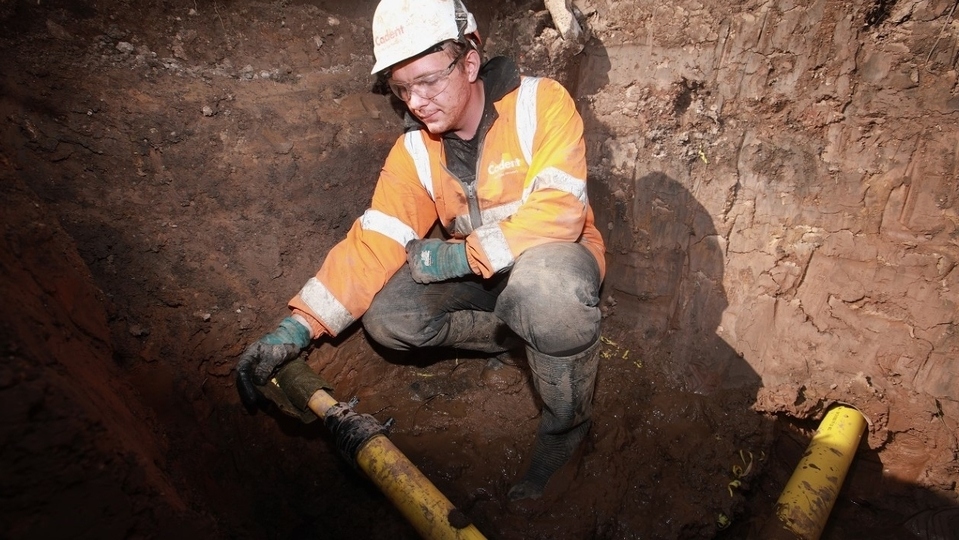£50m gas pipe upgrade helps journey to net zero
Date published: 03 April 2021

An engineer replacing gas mains
Details of a programme to upgrade the North West’s oldest gas mains – some of which were installed over 100 years ago – have been published, as the region’s gas network gets ready to begin its 2021/22 programme.
Every year, Cadent replaces around 300 to 350 miles of its 21,000-mile North West underground pipe distribution system.
These are mostly ageing metallic mains nearing the natural end of their safe operating lives.
Upgrading to plastic ensures a long-term safe network and helps get it ready for the introduction of greener gases like hydrogen and biomethane, which are both essential to the UK achieving net zero carbon emissions.
The programme confirmed for April 2021 to March 2022 includes 485,178 metres of gas mains in the North West region.
This is the same length as more than 4,600 football pitches, or the same height at more than 3,000 Blackpool Towers.
It is almost double the distance, as the crow flies, from the middle of Manchester to central London.
And it represents at least £50m investment in the North West gas network, with more than 600 engineers employed to deliver the work.
In Oldham alone, 13,092 metres of pipe to be upgraded.
Cadent has been working with the highways authorities to agree the best and least disruptive timings to carry out these essential upgrade.
Details have also been shared with local councils and other groups.
Letters are sent to properties in the vicinity of the work areas in the weeks leading up to start dates.
The programme will factor in, and seek to avoid clashing with, any major events that may take place once Covid19 restrictions are lifted.
“More than 80 per cent of homes in the North West rely on gas for central heating and it’s our job to make sure they get it, safely and reliably, every minute of every day of the year,” said Craig Horrocks, who heads Cadent’s gas mains upgrade work in the region.
“We’re also excited by the arrival soon of hydrogen to our networks, a zero-carbon gas at point of use, as well as low-carbon biomethane, a gas made from waste.
“Both are essential to the UK reaching its goal to have net zero carbon emissions.
“As our older stock reaches the end of its safe working life, we must replace it.
“In most cases we’re able to insert the new pipe into the old one, a technique that reduces the time of each project and means we don’t have to dig as many excavations.
“It also means an end to what often becomes increasingly-frequent visits – with associated disruption – to repair faults on the older metallic mains, as they start to show signs of age.
“We know it’s not ideal, but my team is determined to move as quickly as they safely can and get the work done with as little disruption as possible.”
Gas remains ON throughout the work, although in some cases properties that take a direct feed from the pipe being replaced will lose supply for up to 12 hours, as their building is connected in to the new main.
Everyone is given advance notice of this and customer teams will be available to answer any questions.
Do you have a story for us? Want to tell us about something going on in and around Oldham? Let us know by emailing news@oldham-chronicle.co.uk , calling our Oldham-based newsroom on 0161 633 2121 , tweeting us @oldhamchronicle or messaging us through our Facebook page. All contact will be treated in confidence.




